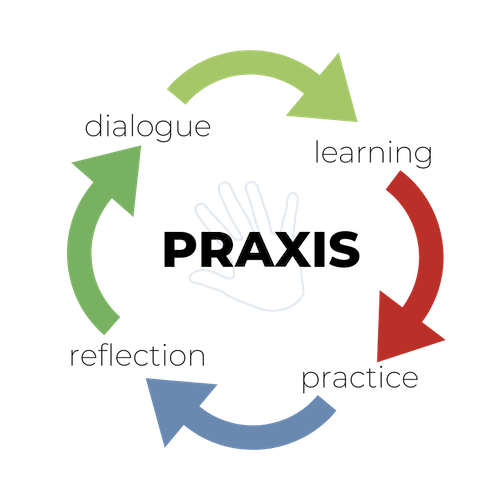
Reflective learning is a crucial component of adult learning, self-directed learning, transformative learning, and lifelong learning. But it is also a field of study in its own right. The value of reflective learning is that it can lead to learning transfer and deeper learning as learners engage in sense making.
There are a variety of ways to practice reflective learning in an online or blended course. We can invite learners to reflect on content, application, or experience. There are also a variety of learning activities that we can use to encourage reflection.
Reflecting on Content
Sometimes we introduce students to content in our courses because we have affective goals for them. Perhaps we want students to respond to the material or internalize a set of values. One way to do that is to ask students to write a reflective paper or reflective journal. For example, students in an entry level course on Mosaic Literature are asked to write a series of reflective papers based on writing prompts that ask them how they would have responded if they had been a character in the story. For many of these students, it is the first time they have read the stories in the Pentateuch. The papers provide an opportunity for them to identify with the characters and come to see the story as something that is relevant to their lives today—something they can learn from.
We can also utilize reflection on content as a way for students to self-assess their understanding of the course material. We might ask students to reflect on what they are learning in the course and identify any areas they are struggling to understand or have questions about. These types of reflective assignments may not be part of our graded assessment strategy for the course; if they are graded at all, it might be as credit/no credit. Instead, self-assessment offers the student an opportunity to reflect on their own process of learning and evaluate the progress they are making toward their learning goals.
Reflecting on Application
 If we have behavioral goals for our learners, we likely want to give them an opportunity to put those skills into practice. The praxis model gives us a way to think about learning new skills that incorporates reflection as well as dialogue. Without dialogue as part of the process, students could learn a skill, practice it, reflect on it, and begin to form bad habits. Dialogue is where the teacher can correct any mistakes so that students are practicing the skill correctly. It’s not that “practice makes perfect,” but “perfect practice makes perfect.”
If we have behavioral goals for our learners, we likely want to give them an opportunity to put those skills into practice. The praxis model gives us a way to think about learning new skills that incorporates reflection as well as dialogue. Without dialogue as part of the process, students could learn a skill, practice it, reflect on it, and begin to form bad habits. Dialogue is where the teacher can correct any mistakes so that students are practicing the skill correctly. It’s not that “practice makes perfect,” but “perfect practice makes perfect.”
Dialogue may be between the teacher and the learner, but it may also be between learners. In a counseling course, students might be asked to role play a counseling technique and then dialogue with a partner or small group about the role play. What did they observe during the role play? What did they learn from doing it? What ideas do they have for how to improve next time?
Reflecting on Experience
Reflecting on – One of the characteristics of adult learners is that they bring a wealth of prior experience to the learning process. We can use reflective learning activities to invite our adult learners to reflect on their life experience and connect it to the learning activity. One way to invite these kinds of reflections from our learners in an online class is through the use of discussion forums.
Reflecting in – One of the benefits of online learning is that it affords us the opportunity to push leaning into the learner’s life and ministry context. We might encourage learners to participate in practical ministry experiences as part of their course work, and also encourage them to build in moments for reflection during those experiences. Experienced teachers make use of formative feedback to adapt their teaching strategies to the needs of the learners. We can help our students begin to cultivate that skill by encouraging them to pause and reflect periodically on how well their own strategies are working as they engage in ministry.
Reflecting after – If learners are involved in these kinds of practical ministry experiences, we also want to encourage them to reflect on them afterward in the online class. These reflections could take the form of a reflective journal where the student processes through the experience and the teacher can give feedback. Another option is to have students reflect on their practical experience and share those reflections with other learners in a discussion forum, thus forming a community of practice.
